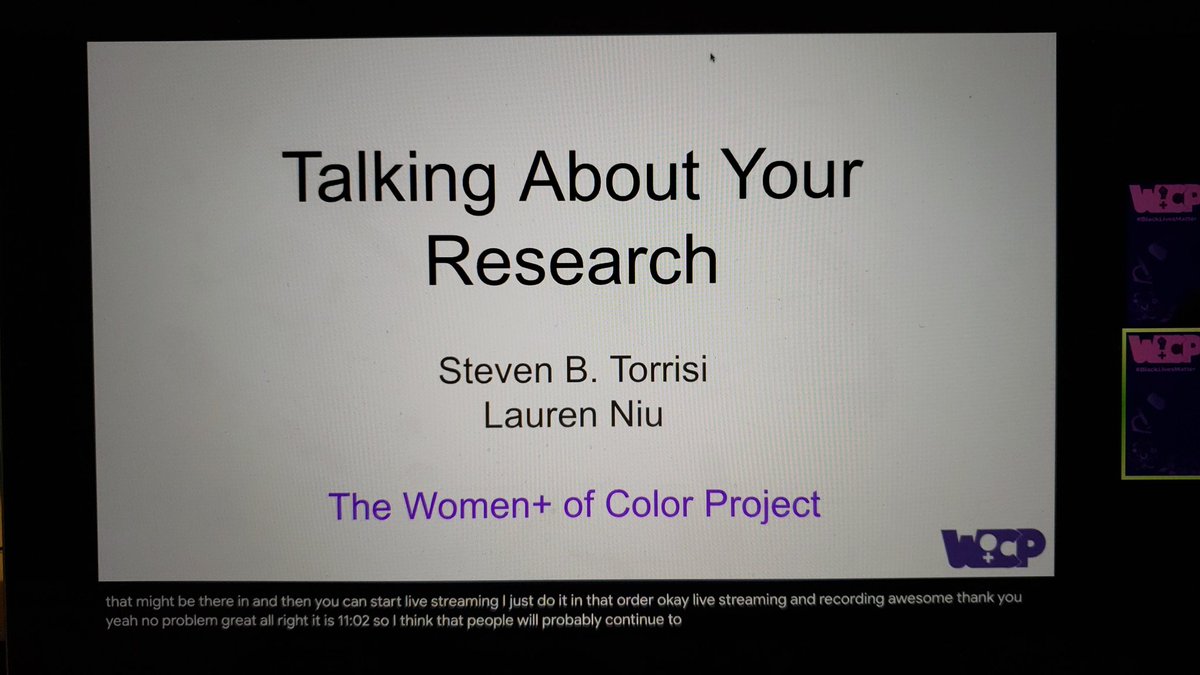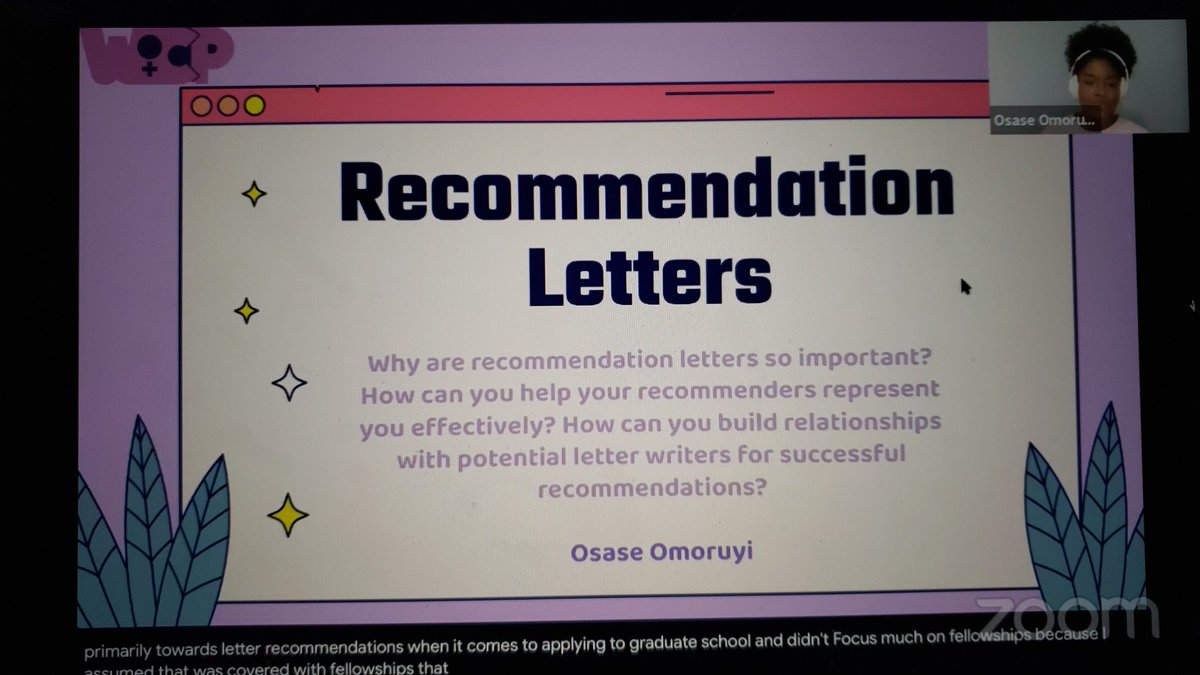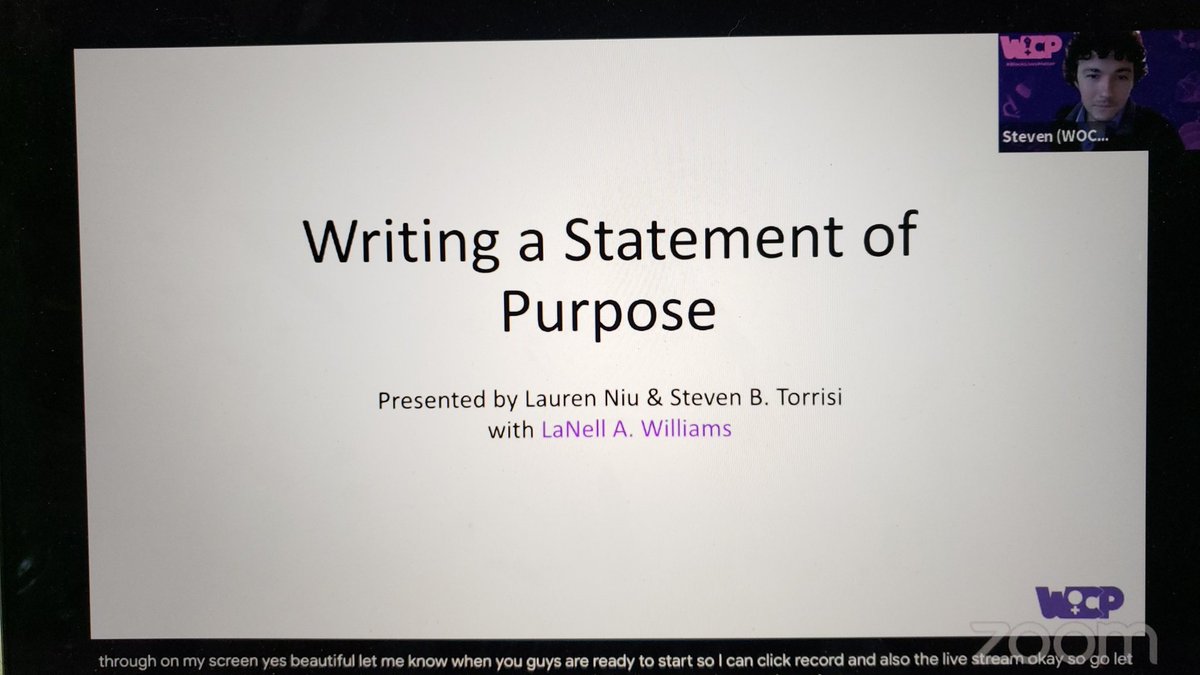
We welcome Dr. Jacob Barandes, Co-Director of Graduate Students at Harvard University! He will be talking about Demistifying the Graduate Admissions Process! #thewocproject #wocp #stem #womeninstem #graduateschool 

Science PhD Programs don't charge tuition, but rather students get paid!! This is a big thing that most students may not know about. #salary #gradstudentsgetpaid
Some schools may offer relocation expenses, but most do not. It's important to pay attention to your acceptance letter and see what they offer. #gradschool #moving
Students if eligible, should apply for external fellowships: NSF GRFP, DoD NDSEG, NASA, NIH, AAUW, Ford, etc. These help pay for your PhD and can help you in many ways!! #fellowships #gradschool #PhD #womeninstem
What does the admissions schedule look like?
Summer/Fall leading into Senior Year:
General and Subject GRE Dates (check with your school if they're requiring it for this year)
Start writing statement of purpose, talk to letter writers
December: most application deadlines!
Summer/Fall leading into Senior Year:
General and Subject GRE Dates (check with your school if they're requiring it for this year)
Start writing statement of purpose, talk to letter writers
December: most application deadlines!
January-February: start hearing back
February-April: dept visits
April 15: deadline to reply to schools
#gradschool
February-April: dept visits
April 15: deadline to reply to schools
#gradschool
What are admissions committees looking for? They want to know you can do research and are capable of going through the process of research. That's what you'll be doing mostly in grad school! Although they also want to see you do well in classes and exams since qualifying exams!
The statement of purpose is an essential component of the application process and is about a page and a half. Warning : it will be read by tired and busy committee members so sticking to a predictable format is wise! Be sure to make it as easy as possible to get the most info!
Be organized, don't waste space, double check your grammar! Headers are totally fine but cut down the adjectives.
Most important thing is to not count yourself out, apply!!! Most schools don't have cutoffs for scores and grades and they look at the whole app for strength. Apply to 8-12 schools, including safety and reach schools. Fee waivers are available at most schools! Be sure to check!
• • •
Missing some Tweet in this thread? You can try to
force a refresh





